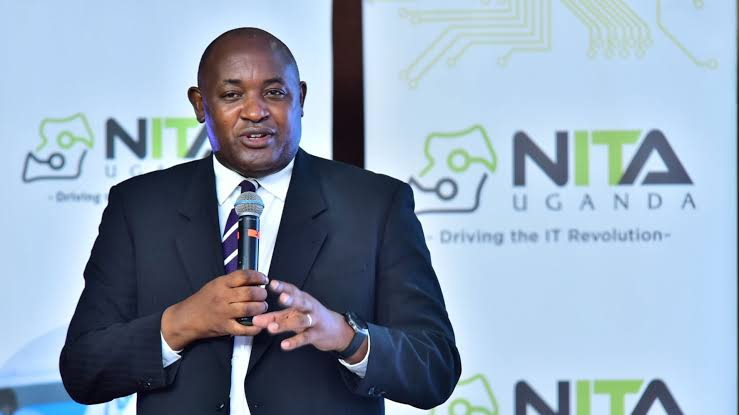Uganda is on the verge of rolling out a new framework of social media regulation, one that has triggered anxiety among civil society groups, content creators, and internet freedom advocates. But beneath the surface-level alarm lies a deeper, more complex national concern: how does a country protect itself from the dark side of digital platforms without extinguishing the light of free expression?
While the conversation often centers around censorship and control, Uganda’s government insists that these measures are not designed to mute voices but to preserve national harmony, public morality, and digital sovereignty in a rapidly transforming information age.
During a recent press conference in Kampala, the Minister of ICT and National Guidance, Dr Chris Baryomunsi, acknowledged the government’s intent to regulate the digital space, but stressed that it does not intend to shut it down entirely.
“We shall not close social media, including TikTok, as some leaders have requested,” Baryomunsi clarified. “But we are studying the entire social media landscape intending to acquire technologies to regulate and filter harmful content,” he added.
The government’s position appears rooted in the belief that unrestricted digital platforms are becoming a breeding ground for misinformation, moral decay, and socio-political tension. As the 2026 elections draw near, authorities are especially concerned about platforms being used to stoke division, spread falsehoods, and erode public trust in national institutions.
To the state, this is not about suppressing dissent but about managing a chaotic information environment that could destabilize society, a concern not unique to Uganda but echoed across nations worldwide.
The recent focus on TikTok, a platform with over 5.5 million Ugandan users, illustrates the growing tension between cultural globalization and local value systems. During Eid al-Fitr celebrations, the Mufti of Uganda, Sheikh Shaban Ramadhan Mubajje, publicly urged the government to ban the app, citing its corrosive impact on national unity and religious harmony.
“TikTok has become a problem and may erupt into violence,” he warned. It’s worse than Facebook. It’s being used by idle people to mislead others, cause division, and promote immorality.”
Though his comments were polarizing, they speak to a broader societal anxiety: is Uganda losing control of its cultural narrative in the flood of algorithm-driven, unfiltered content?
The government sees regulation as a way to reclaim agency over national discourse, and to ensure that digital platforms don’t override local values, institutions, and traditions.
Uganda has walked this path before. In the lead-up to the 2021 elections, Facebook was blocked over allegations of political interference and bias. Despite remaining officially banned, many citizens, including top government officials, continue to use it via VPNs.
Asked why Facebook remains offline, Baryomunsi pointed to the platform’s partisan conduct during elections.
“Facebook took sides in Uganda’s political contests. “We’ve been in talks with them to find common ground, and if those discussions succeed, we may reopen the platform.”
To the government, platforms like Facebook represent powerful foreign entities that can shape domestic politics without accountability. Regulation, then, is framed not merely as censorship but as digital self-defense, a means of asserting national sovereignty in cyberspace.
However, human rights defenders and civil society organizations view the current trajectory as a slippery slope toward repression.
Anthony Masake, Executive Director of Chapter Four Uganda, warned that the government’s approach—particularly the use of the Computer Misuse Act—is increasingly being weaponized to silence dissent.
“The increased use of vague and repressive laws to criminalize legitimate expression ahead of the 2026 polls is deeply troubling,” he said. The call for a TikTok ban is an unjustifiable attack on the freedom of expression. Internet freedom is the oxygen of democracy.”
Critics argue that regulating content should not mean criminalizing voices, especially when the criteria for what constitutes “harmful” or “offensive” speech remain undefined and opaque.
The Mufti’s vocal stance on TikTok has attracted criticism, especially as controversy surrounds his leadership. His recent five-year term extension sparked protests, legal battles, and viral TikTok criticism. Some argue that his call to ban the platform is not about values but about shielding himself from public accountability.
This moment illustrates one of the core dilemmas of social media regulation: are these platforms truly the problem, or are they simply exposing problems that already exist? When leaders advocate for bans, it becomes crucial to question whether their motivations are driven by principle or self-preservation.
Uganda’s move to regulate social media stems from a legitimate desire to protect national unity, maintain moral standards, and prevent chaos in a volatile information age. In a world where digital platforms can amplify falsehoods, deepen divides, and challenge governance, few would dispute the need for some level of oversight.
However, regulation must not become a euphemism for repression. If efforts to control content led to the stifling of free thought, dissent, and creativity, the nation risks sliding into digital darkness, where fear replaces dialogue and silence becomes safer than expression.
The path forward demands balance. Uganda must build transparent, accountable, and rights-respecting systems that can filter truly dangerous content while protecting the voices that give democracy its depth and resilience. Social media, like any powerful tool, can either destabilize or strengthen a nation depending on how it’s handled.
In the end, the question is not just whether Uganda is walking into a digital blackout, but whether it can light a path that protects both its people and their freedom to speak.


